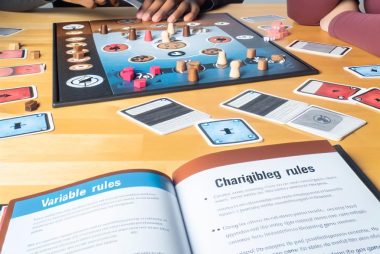The importance of table selection in blackjack
The Role of Table Selection in Blackjack
When venturing into the world of blackjack, many players prioritize honing strategies such as card counting, utilizing specific betting systems, or mastering the basic gameplay. However, there is an often overlooked aspect that can critically influence the odds and outcomes: the choice of the right table. Here, we delve into the critical role table selection plays in maximizing a player’s potential in blackjack.
Understanding the House Edge
Each blackjack table in a casino offers a unique set of rules that can subtly alter the house edge. The house edge is the percentage indicating the casino’s statistical advantage over players. It’s important to comprehend that even minor differences in the rules can significantly affect this advantage. An illustrative example is whether the dealer stands or hits on a soft 17. Tables where the dealer stands on a soft 17 are generally more favorable for the player than those where the dealer hits.
Table Rules Affecting House Edge
Several key table rules determine the house edge. Notable among these are variations in the number of decks employed, the payout ratios for a blackjack, options for doubling down, and the availability of a late surrender. Each of these factors can impact the player’s chances of winning. Hence, before committing to a table, players should take the time to *examine* the specific rules, opting for those that offer the most advantageous conditions.
The Impact of Table Limits
Table limits, defined by minimum and maximum bets, differ from table to table. Aligning your choice with your bankroll and strategy is crucial. High-stakes tables offer the potential for more substantial wins yet pose increased risks, while low-limit tables might not provide the same level of thrill or potential for larger winnings. Effective bankroll management involves selecting tables that balance possible returns with manageable risks.
Table Crowding and Pace of Play
The number of players at a table influences the pace of play, which subsequently impacts the player’s edge over time. A crowded table generally means fewer hands dealt per hour, offering card counters more time to make informed decisions but reducing the total action for flat bettors. On the other hand, a less crowded table increases the hands played per hour, potentially benefiting players employing strategies that depend on turnover rate. Evaluating table crowding is a strategic consideration for those following specific betting or playing methods.
Atmosphere and Comfort
Beyond the mathematical side, the comfort and ambiance of a table can greatly influence a player’s overall experience and decision-making process. Casinos typically provide tables with varying atmospheres, from quiet and serene to lively and bustling. Players are advised to select environments that suit their personal preferences and playing styles, allowing them to remain focused and make well-considered decisions throughout their gaming session.
Additional Resources
For players keen on broadening their knowledge of blackjack and casino gaming strategies, numerous online platforms offer detailed guides and educational resources. Engaging with a variety of sources allows for a more comprehensive understanding through both theoretical and practical lenses. It’s wise to seek out trustworthy resources, such as those from reputable sites like Blackjack Apprenticeship, which offer in-depth analysis and strategic advice.
Conclusion
In summary, while strategies and expertise are integral to success in blackjack, selecting the right table can markedly influence a player’s success. By thoroughly understanding a table’s specific rules, gauging financial limits, and considering personal comfort and preferences, players can enhance their gaming experience and increase their potential for winnings. Mastering table selection is, therefore, a critical component of maximizing one’s gameplay in blackjack.




